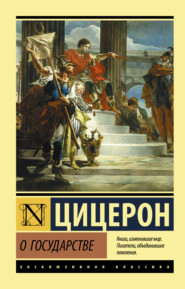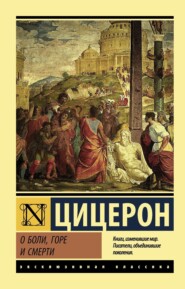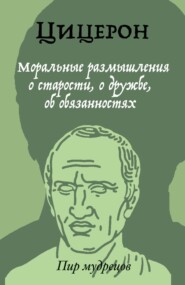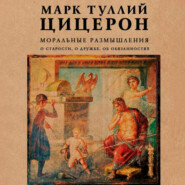По всем вопросам обращайтесь на: info@litportal.ru
(©) 2003-2024.
✖
The republic of Cicero
Автор
Год написания книги
2018
Настройки чтения
Размер шрифта
Высота строк
Поля
notes
1
His. Nat. 18. 3. 1.
2
Cato de Re Rustica. Majores enim nostri, &c.
3
Dio. 11. 8. Gellius xv. 27.
4
Roma patrem patriæ Ciceronem libera dixit. Juv. 8.
5
Magna Voce me vere jurasse juravit. Ep. fam. 5. 2.
6
Quoniam, inquit, meos tam suspicione quam crimine judico carere oportere. Suet. J. Cæs. 74.
7
Sed quoniam qui nihil possunt, &c.
8
Ep. fam. 8. 14.
9
“Quid porro aut præclarum putet in rebus humanis.” Lib. 1. xvii.
10
Let. to Att. vii. 3.
11
Lact. Inst. vi. 8.
12
Pecuniosi.
13
Locupletes.
14
Plato.
15
Asses dare.
16
Carthage.
17
γὲροντας in the MSS.
18
This passage appears to deserve a note. The words “nexa” and “nectier” are used in the original. And at the first glance, the passage, connecting it with the well known custom of keeping debtors in chains, as well as the memorable occasion which produced this insurrectionary movement, would appear to declare, that all kinds of bondage for debt were abolished in future. In early periods, whoever was unable to pay his debts, was adjudged by a decree of the prætor, to discharge them in personal services: for which purpose his person was delivered to his creditor; whose slave in every sense of the word he thus became, until the debt was discharged. A debtor thus situated was termed “addictus” or sentenced. Livy, vi. 36., relates “that those against whom judgments had been given, (addictos) were led out daily in herds from the Forum, to the mansions of the patricians, which were filled with enchained debtors: and that wherever a patrician dwelt, there was a private prison.” That all debtors were subject to actual bonds, appears from every indebted person under voluntary judgment, being called “nexus,” meaning linked or chained; and probably when judgment was passed, debtors were delivered in that condition to the creditors. But “nexus” changed its meaning, as the word “bond” has done in our language, where we bind ourselves only with forms. The urgent necessity of the plebeians, arising out of the exactions of the patricians, obliged them to borrow money at usury; and upon such occasions, for money weighed out to him “per æs et libram,” before witnesses, the borrower pledged his person and liberty to the lender as security for the debt. This voluntary act, which was equivalent to a modern confession of judgment, constituted the debtor a “nexus;” before the period of payment had expired, at which time only he was liable to fetters. Upon the occasion of the insurrection mentioned in the passage; a young man of respectable plebeian family, C. Publilius, surrendered himself to Papirius, a patrician usurer, in the place of his father who had failed to redeem himself from his “nexus.” Rejecting the infamous propositions made to him, Papirius caused him to be cruelly scourged. This transaction having roused the people, the senate was obliged to consent to the liberation of all persons who had become “nexi” by their voluntary act, and to order the practice to be discontinued in future.
I have translated the passage in accordance with this view of the subject. Niebuhr, vol. i. 506. Livy, vi. 36. viii. 28. &c.
19
The continuation of this passage is, perhaps, found in Nonius Voc. Exsultare, “which nourishes itself with blood, and which so delights in every kind of cruelty, that it scarcely can be satiated with the sad destruction of human beings.”
20
Professor Mai quotes the following passage from St. Augustin, De. Civ. Dei, as containing a summary of that part of the discussion interrupted here. “And when Scipio had in a more comprehensive and diffuse way, shown how advantageous justice was to a state, and how injurious the absence of it was: Philus, who was one of those present at the discussion, took it up, and proposed that that subject should be very carefully investigated, on account of the opinion which was obtaining, that governments could not be administered without injustice.”
21
Alexander.
22
These are sophisms brought forward in favour of injustice.
Vide Lact. Inst. 5.
23
To restore things unjustly acquired.
24














